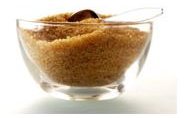Sugar and Your Health
Excess is usually harmful
The other source of energy is starch, which is converted into sugar for digestion in the body. We become fat when stored fat accumulates. We also have problems with our blood. Excess sugar causes more fatty substances in the blood than excess starch, and this is a trigger for diabetes and heart disease.
Eating excess sugar does not actually cause diabetes. Too much sugar encourages weight gain, and obesity increases the risk of diabetes. Tooth decay is another potential harmful effect of eating too much sugar. To avoid these disorders; we need to cut down on our sugar and starch intake. However sugar is not necessarily bad for our health
The other source of energy is starch, which is converted into sugar for digestion in the body. We become fat when stored fat accumulates. We also have problems with our blood. Excess sugar causes more fatty substances in the blood than excess starch, and this is a trigger for diabetes and heart disease.
Eating excess sugar does not actually cause diabetes. Too much sugar encourages weight gain, and obesity increases the risk of diabetes. Tooth decay is another potential harmful effect of eating too much sugar. To avoid these disorders; we need to cut down on our sugar and starch intake. However sugar is not necessarily bad for our health
What is Sugar
Sugar comes from plants which synthesize sugar from sunlight, then use it for growth. The sugar beet and sugar cane plants are grown for their stored sugar. Sugar cane is grown in tropical areas, while sugar beet is grown in temperate climates. After the refining process, both sugars are identical.
Sugar comes from plants which synthesize sugar from sunlight, then use it for growth. The sugar beet and sugar cane plants are grown for their stored sugar. Sugar cane is grown in tropical areas, while sugar beet is grown in temperate climates. After the refining process, both sugars are identical.
Sugar is a Carbohydrate
You must remember that sugar is a carbohydrate, and carbohydrates provide a major source of energy for our bodies. We need to recognize the food that is low in sugar content, like fruits for example. Avoid candy and soft drinks which have a high content of sugar, and enjoy fruits which contain natural sugar. In addition fruits are high in vitamins and minerals.
Types of refined sugar
Various types of refined sugar are available. Granulated sugar is the end product of the normal refining process. It is the cheapest sugar available and can be used for all general sweetening purposes when dissolved first. There is also castor sugar, icing sugar, cube sugar, preserving sugar, which is good for jams and jellies; and brown sugar
which is only partially refined, and recommended by nutritionists as being more healthful than white sugar.
Monitor your sugars
Since sugar appears in almost everything we eat and drink, it is necessary to read nutrition labels and monitor the amount of sugars we eat. Sugar has been blamed for so may health problems, and although it is pleasurable to the palate, many regard it as a health enemy. However, The American Dietetic Association, the Food and Drug Administration and the National Academy of Sciences are all in agreement that sugar in moderation is acceptable as part of a balanced diet.
In defense of sugar
An apt response to the question “Is Sugar Necessary for Health”? can be that made in a statement by the Sugar Association in defense of sugar, following a statement made by the American Heart Association, linking sugar to impacts on cardiovascular health. According to the Sugar Association:” Sugar is all natural and just 15 calories per teaspoon.” The statement adds that sugar is “an important ingredient in many health foods. “ The statement further adds” Sugar is used in our food supply not only because it provides sweet taste, but also provides essential functional properties in food formulation, especially safety due to its preservative action”. The statement concludes with:”Sugar makes many healthy foods palatable, which contributes to intakes of key nutrients needed to maintain good health.”
